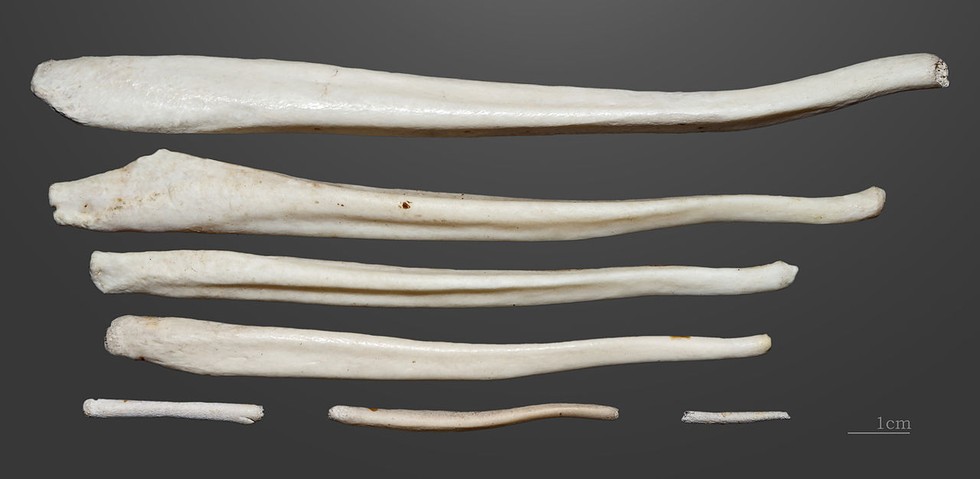As the ancestors of humans became more monogamous, they lost their boned penises, suggests the new study, published in the journal Proceedings of the Royal Society B.
The paper is the first to confirm that the ancestor of all mammals did not have a penis bone—called the baculum—but that ancestral primates and carnivores had this bone, which facilitates erections and prolonged penetrations, otherwise known as intromission.
"We know that both chimpanzees and bonobos, our closest relatives, have small bacula, and it is likely that the most recent common ancestor we share with them had one too," co-author Matilda Brindle, a University College London anthropologist, told Seeker. "Exactly where over the course of hominin evolution the baculum disappeared is difficult to know."
She even thinks it is possible that early human males had this bone, but that "it may have just been too small to have been preserved." The chimp baculum today, she added, is only 0.2 inches long.
Brindle and co-author Christopher Opie examined the evolutionary history of the baculum. They looked at hundreds of animals that have, or lack, the bone to see if they could identify patterns. The researchers first determined that animals with a penis bone tend to have longer lasting intromission.
"We defined prolonged intromission as that which continued for longer than three minutes," Brindle said. "Short intromission was that which continued for less than three minutes. When all cultural aspects of sex are stripped away and a male's aim is solely to ejaculate, human intromission is classified as short."
 |
| Brown bear penis bones. |
Prior research suggests that ancestral humans called australopithecines as well as early members of our genus Homo "were at least facultatively monogamous," Brindle said. This means that they were capable of, and likely often chose, monogamy, even if they were not restricted to this lifestyle.
Animals with a baculum tend to be more polygamous, which the authors defined as a mating system in which multiple males mate with multiple females.
"Humans tend to have monogamous or polygynous (one male, multiple females) mating systems," Brindle said. "When only one male has access to a female, post-copulatory sexual selection is relatively low or absent."
Humans are not the only primates without a penis bone. Tarsiers and several monkeys from Central and South America lack this bone too, according to the authors.
Tarsiers are romantic primates that spend a lot of time wooing. For example, they will "sing" in duets or in calling concerts involving multiple individuals. Like humans, they usually choose to be either monogamous or polygynous.
Alan Dixson of Victoria University of Wellington's School of Biological Sciences told Seeker that the new research confirms "that longer bacula typically occur in those primates and carnivores which mate for extended periods."
Many mysteries remain to be uncovered about animal mating. Little, for example, is known about bat mating durations.
Read more at Discovery News

No comments:
Post a Comment